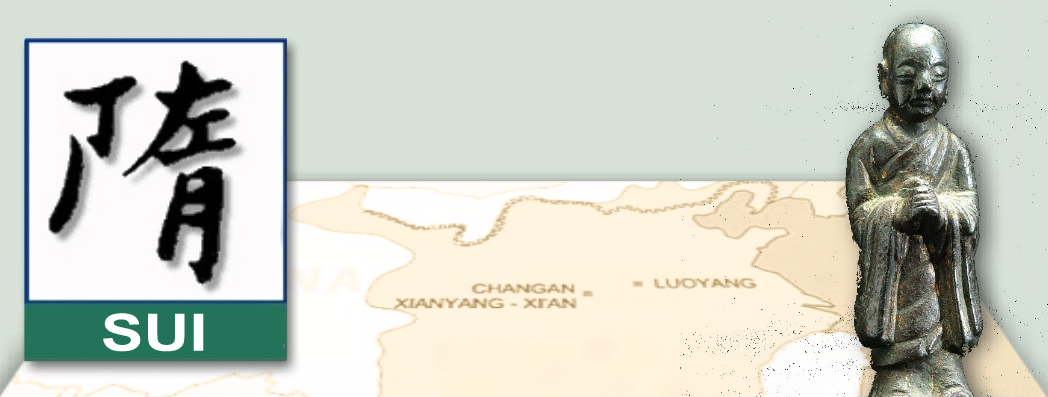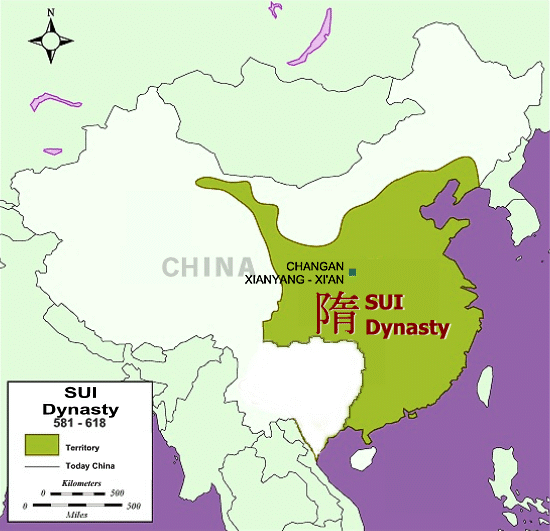581 - 618: Sui Dynasty

Image above - Young Buddhist Monk
Bronze of Sui dynasty (581-618)
At the end of more than three centuries of division and sharp political conflicts, the Sui Dynasty takes control of China (581-618) with Wendi Yang Jian, founder and visionary who was able to consolidate the Chinese territory. It lasted only 37 years, however, after the fall of the third emperor, defeated in several battles with neighboring states of the North, and plagued by internal rebellions.
Great was the contribution of Buddhism during this period, introduced into China during the Han Dynasty, and increasingly accepted and encouraged by the Sui imperial families. It created a unifying cultural force that raised the population from the war.
During the Sui Dynasty, Buddhism was responsible for the rebirth of culture in China.
Another significant contribution to economic growth and was the excavation of the Imperial Canal, (almost 1000 miles), an artificial waterway which created a network of waterways for transportation, trade, and military purposes, which connected the capital Chang'an (Daxing) and Luoyang. Other projects, such as the reconstruction of the Great Wall, and the reunification of the currency, increased the growth of the empire, opening the doors to the future Tang Dynasty.
Influenced by India, there is another discovery in this period: the introduction of examples of white ceramic, and polychrome pottery earthenware, found in the sculptures of Buddhist temples and caves.



